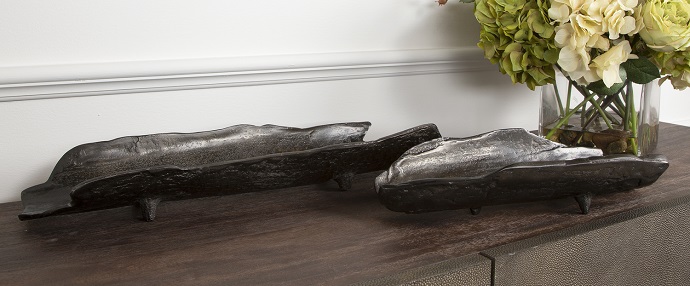It would be generous to say I can be a little absentminded. At one point or another, I’ve walked out of the house without just about every essential you can imagine. Keys, badges, umbrella, coat, purse, phone, wallet – you name it, I’ve probably gone on my merry way without it. If you’re like me, you’ve probably gotten well-meaning advice from less-forgetful friends. Put a post-it on your door, make yourself a check-list, double check your stuff the night before. For me, none of that ever helped me get organized. If you’re the same way, here’s what I’ve found actually does make a difference.
1. Have A Dedicated Spot For Everything You NEED To Take With You
My forgetfulness comes in one very specific brand: if the thing I’m looking for isn’t in one of the two or three dedicated spots it’s supposed to be, it more-or-less feels like it’s been lost forever. I’ve found that making sure things I need ARE in those very specific spots actually makes a pretty huge difference. It can take a little while to establish a routine of putting important items in the same spot every day. But making that spot somewhere obvious – like an organizer right near your door – can make the habit easier to establish. An obvious spot will also be easier to remember when you’re in a rush.
2. Make Sure That Spot is VISIBLE
If you tend to forget items that you don’t or can’t see on your way out, no amount of organization will help if it keeps your stuff hidden. For me, anything with a drawer, basket, or cubby is a total no-go. In fact, I’m prone to forget something that’s on my coat rack if it’s hidden behind another coat. If that sounds familiar, look for key, accessory, or coat organizers that have plenty of hooks to keep items separate, surfaces to put items down on, and if you need something drawer-like, aim for ones made of mesh or some other semi-transparent material.
3. It’s Not Just About Your Keys
“I’m always forgetting my keys” is the anthem of the absentminded. But the truth is, most of us can’t get too far without them. Even if you skip over locking your door, you’ll get stopped pretty quickly by an engine you can’t start. But forgetting something like a work badge, your wallet, or a mask can lead to bigger problems later on in the day – and a much bigger setback than just popping back inside to grab your keys. So, while a simple key organizer is a tempting solution, you’ll be better served by something a little more robust.
4. Keep It Simple
That said, I’ll reiterate that a complicated organizer might be more trouble than its worth. Not only are us absentminded folks more likely to forget something that’s stowed away in a nice, neat container – we’re also less likely to use one in the first place. Especially if you’re the type to just unload all your stuff the moment you walk in the door, the most useful tool help you get organized might be a simple tray or bowl. Sure, this is little more than a target to aim for when you toss your keys at the end of the day. But if you use it consistently, everything you need should be grouped and ready to go the next morning.
5. Scale According To Your Needs
Of course, what I need to grab on my way out the door might not be the same as what you do. Any tactics you want to use to get organized should start with a detailed list of exactly what you need to take with you every day, with an emphasis on what you’re most likely to forget. If it’s just your keys and wallet, you might only need something small. But if it’s a long list, don’t be afraid to go a little bigger. Valet stands and hall stands are a bit of an old-school option (and most have a very traditional look). But ones with lots of surfaces, hooks, mirrors, stands, and holders can equip a whole lot of essentials – and make a very good, obvious, one-stop location on your way out the door in the morning.
Ultimately, any advice about how to get organized depends on YOU. After all, no one knows better than you where your blind spots are, or what works really well to help you get organized. My best advice is to build up a habit – and the corresponding muscle memory – but it’s up to you to figure out what that will look like for you!






